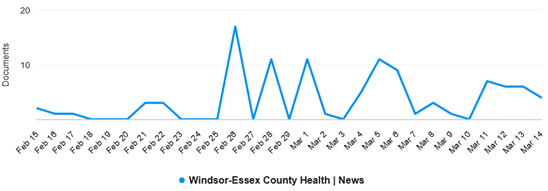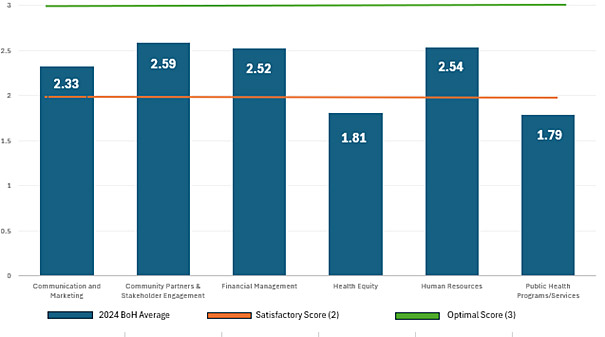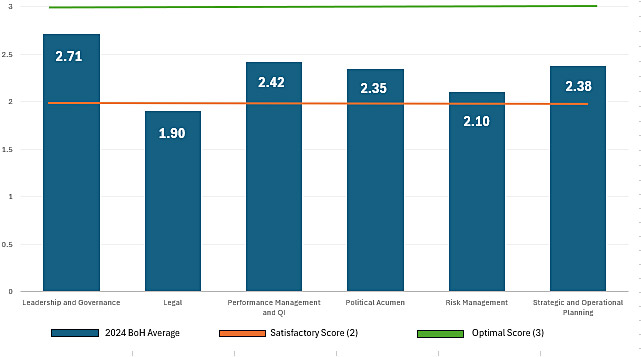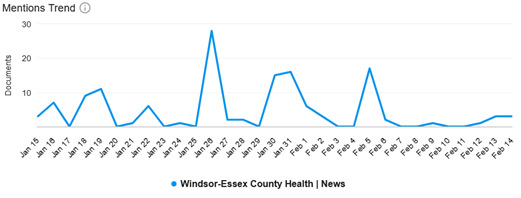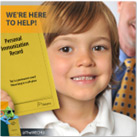Endorsement of CMOH Annual Report - An All of Society Approach to Substance Use and Harms
5/16/2024
BACKGROUND
In April 2024, Ontario’s Chief Medical Officer of Health (CMOH) Dr. Kieran Moore released his 2023 Annual Report, Balancing Act: An All-of-Society Approach to Addressing Substance Use and Harms. This report is his second as CMOH following the previous year’s Being Ready: Ensuring Public Health Preparedness for Infectious Outbreaks and Pandemics (2022). Highlighting recent trends and emerging or urgent public health matters, CMOH Annual Reports aim to set priorities for action across all levels of government. The 2023 report guides policy decisions and planning related to substance use and harm reduction interventions to reflect the increasing rates of overdose and death caused by substances prior to and throughout the COVID-19 pandemic. While this is the first report to focus solely on substance use, several previous CMOH annual reports have commented on its public health impact through the below 2015-2017 Annual Reports:
- Mapping Wellness: Ontario’s Route to Healthier Communities, 2015
- Improving the Odds: Championing Health Equity in Ontario, 2016
- Connected Communities: Healthier Together, 2017
The 2023 report provides 30 goals to guide action related to four specific substances: tobacco/vaping products, alcohol, cannabis, and opioids. These four substances combined account for thousands of emergency department visits hospitalizations and deaths in Ontario in addition to an economic impact of nearly $15 billion in costs attributable to healthcare, lost productivity, and the criminal justice system. When considering interventions at the local level, the report identifies the below strategies to address substance use across the prioritized four substances:
Tobacco/Vaping Products
- Raise awareness of the risks of tobacco and vaping products.
- Prevent/reduce vaping and nicotine use among youth and non-smokers.
- Advocate for expanding areas where smoking/vaping is prohibited (including apartment and condominium board policy), and include water pipes in bans.
- Manage outlet density and hours of access.
- Increase access to evidence-based smoking cessation therapies and supports.
Cannabis
- Increase Awareness of Cannabis Harms.
- Promote Health Canada’s Low Risk Cannabis Guidelines.
- Educate related to the risks of cannabis use including different forms and concentrations, during pregnancy, impaired driving, and polysubstance use.
- Reduce risks to young children.
- Increase awareness related to the risk of pediatric poisonings from edibles.
Alcohol
- Advocate for a comprehensive provincial alcohol strategy.
- Increase awareness of alcohol-related harms.
- Advocate for policies which limit access to prevent harm at the local level.
- Enhance clinical services by promoting best practices, including screening and brief interventions and treatment access for people with alcohol use disorder.
Opioids
- Advocate for increased access to resources that address determinants of health, including housing and access to healthcare and social services.
- Raise awareness of the risks associated with the toxic, unregulated drug supply.
- Inform communities about how to respond effectively (administering naloxone, calling 911).
- Advocate for harm reduction service access, including naloxone, safer supply, supervised consumption (including for people who smoke drugs), and drug checking services and diversion program options.
- Increase access to integrated, timely, low barrier, evidence informed treatment for people who use opioids.
- Address the impacts of grief and loss through services and support for families and friends of people who have died from toxicity and for support workers.
Since 2016 the WECHU has served as a central coordinating agency in Windsor and Essex County around many of the strategies referenced in the CMOH’s report. Through its leadership of the Windsor-Essex Community Opioid and Substance Strategy, its school and community-based health promotion activities, and its harm reduction programming (e.g., Ontario Naloxone Program implementation and Safer Consumption Site advocacy) several of the above-referenced strategies are currently in action. Planning and ongoing public health efforts will build upon the work already underway to align strategies with those prioritized provincially as indicated in the 2023 CMOH Annual Report. In this regard, ongoing partnerships with municipalities and partners in the addictions sector are necessary to take a comprehensive approach to mitigating and scaling back the escalating harms and impact of substance use in the region.
PROPOSED MOTION
Whereas, the CMOH has prioritized the prevention of harms associated with substance use as one of the biggest threats to what had previously been a steady increase in life expectancy in Ontario; and
Whereas, the CMOH calls on all levels of government to support public health efforts and contribute solutions through a comprehensive all-of-society approach to decreasing the impact of substance use on communities; and
Whereas, the impact of substance use on families, the health sector, and the provincial economy requires all partners to work collaboratively on solutions;
Whereas, the WECHU is a leading agency in the area of substance use prevention and harm reduction through its leadership and coordinating role in Windsor and Essex County;
Now therefore be it resolvedthat the Windsor-Essex County Board of Health endorses the 2023 Chief Medical Officer of Health’s Annual Report, Balancing Act: An All-of-Society Approach to Addressing Substance Use and Harms, to reaffirm its support for investment in public programming to mitigate the impact of substance use on Windsor and Essex County communities, and
FURTHER THAT, the Windsor-Essex County Health Unit shares the 2023 CMOH Annual Report as correspondence with local municipalities to inform healthy public policy development in Windsor and Essex County.
Canadian Substance Use Costs and Harms Scientific Working Group. Ontario Profile: Canadian Substance Use Costs and Harms (2007–2020) [Internet]. Ottawa, ON: Canadian Centre on Substance Use and Addiction; 2023. Available from: https://csuch.ca/substance-use-costs/provincial-territorial-costs/
Moore K. Being Ready: Ensuring Public Health Preparedness for Infectious Outbreaks and Pandemics. 2022 Annual Report of the Chief Medical Officer of Health of Ontario to the Legislative Assembly of Ontario. Toronto, ON: Queen’s Printer for Ontario; 2022. Available from: https://www.ontario.ca/page/chief-medical-officer-health-2022-annual-re…
Williams D. Mapping wellness: Ontario’s route to healthier communities. 2015 annual report of the Chief Medical Officer of Health of Ontario to the Legislative Assembly of Ontario. Toronto, ON: Queen’s Printer for Ontario; 2017. Available from: https://www.simcoemuskokahealth.org/docs/default-source/hu-library/repo…;
Williams D. Improving the odds: championing health equity in Ontario. 2016 annual report of the Chief Medical Officer of Health of Ontario to the Legislative Assembly of Ontario. Toronto, ON: Queen’s Printer for Ontario; 2018. Available from: https://www.simcoemuskokahealth.org/docs/default-source/hu-library/repo…
Williams D. Connected communities: healthier together. 2017 annual report of the Chief Medical Officer of Health of Ontario to the Legislative Assembly of Ontario. Toronto, ON: Queen’s Printer for Ontario; 2019. Available from: https:// files.ontario.ca/moh-2017-annual-report-chief-medical-officer-health-en-2023-03-09.pdf


